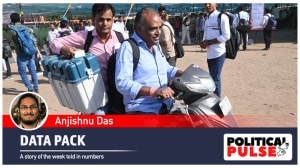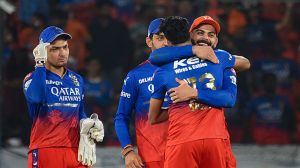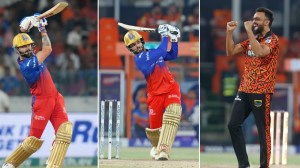- India
- International
Nuclear-Deal: Indo-Japan pact lies at the heart of two US reactor-based projects
Globally, apart from Japan’s JSW, there are just three major heavy forging capacities in operation worldwide that can fabricate large single-piece pressure vessels for nuclear reactors.
Negotiations on a final text of the proposed Civil Nuclear Cooperation Agreement with Japan appear to have made some headway, especially on the contentious issue of reprocessing of spent fuel. Officials involved in the exercise indicated the possibility of Japan somewhat softening its stance on allowing the reprocessing of spent nuclear fuel from Japan-made reactors, something that would have a significant bearing on the progress of the two atomic projects under discussion involving American nuclear vendors — GE-Hitachi and Toshiba-Westinghouse.
If Japan were to go ahead and ink a nuclear deal with India, it could be a crucial determining factor as the two US reactor vendors, as well as a range of other global nuclear reactor manufacturers, source the most critical equipment in a reactor — the calandria or reactor vessel — from Japanese heavy forging major Japan Steel Works (JSW). Experts point to the fact that the transfer of Japanese technology to India for civilian use requires a nuclear pact, but Tokyo has so far desisted from initiating one as India has not signed the Nuclear Non-Proliferation Treaty (NPT).
[related-post]
Globally, apart from Japan’s JSW, there are just three major heavy forging capacities in operation worldwide that can fabricate large single-piece pressure vessels for nuclear reactors — Creusot Forge (a subsidiary of France’s Areva group), Russia’s OMZ Izhora and Chinese state-owned firm China First Heavy Industries. But JSW dominates the nuclear forgings business, accounting for an estimated 80 per cent of the world market for large forged components for nuclear plants and owns the world’s only plant capable of producing the central part of a large-size reactor’s containment vessel in a single piece from a 600-tonne ingot, which reduces radiation risk.
All the global suppliers are booked with orders for at least the next five years as the most critical issue for accelerating nuclear power plant construction is the availability of heavy engineering plants to make the reactor components, especially for units of over 1,000 MWe (mega watt electric).
While Toshiba-Westinghouse’s AP1000 pressure vessel closure head and three complex steam generator parts can only be made by JSW, the Japanese firm has advance orders from GE-Hitachi for fabricating components for its ABWR and ESBWR range of boiling water reactors.

JSW also has the distinction of supplying the pressure vessels for Areva’s first two 1650 MWe EPR plants in Finland and France. Reactor vendors prefer large forgings to be integral, as single products, but it is possible to use split forgings that are welded together. These welds then need checking through the life of the plant.
An NPCIL official said the process of bridging the difference over the substantive issues on the proposed India-Japan nuclear agreement in on and that both countries had made significant progress in the negotiations on civil nuclear cooperation.
JSW has set up a marketing office in India in 2009 through a subsidiary — JSW India Pvt Ltd. While a Tokyo-based Communications Group Manager for JSW had earlier indicated that the company expected a “strong and sustained growth” of the Indian market (for steel products and various kinds of industrial machinery), he had underlined that “the Japan-India agreement for cooperation in the peaceful uses of nuclear energy is now under discussion, so we would like to watch how the things develop”.
Apr 25: Latest News
- 01
- 02
- 03
- 04
- 05








































